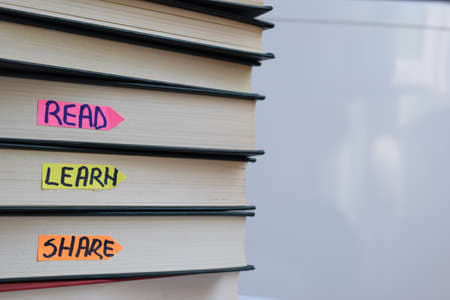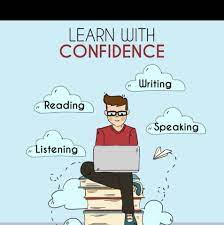READ-LEARN-SHARE
- April Lynne Curayag
- Oct 22, 2021
- 3 min read

READ IT IN A PRODUCTIVE MANNER.
LEARN WITH CONFIDENCE.
SHARE IT ACCORDING TO YOUR PREFERENCES.

Your ability to read has the potential to change your life. Without a doubt, reading has enhanced my life. I've learned new skills, heard a lot of amazing stories, and learned a lot about the globe. I've studied history, dived into the depths of science fiction, gleaned business advice, and much more.
Learning is enhanced when multiple types of knowledge are interwoven and learning is spread out. Collaboration and social contact can be beneficial learning experiences because they foster deeper thinking and activate the "social brain." As with any ability, you can enhance your effectiveness through practice and exposure to the main tactics.
READ IT IN A PRODUCTIVE-WORKEFUL MANNER
You can read, I'm sure. Isn't this what you're reading? (Don't worry if you don't read this.)
Are you, however, productively literate? Do you learn anything from what you read that you can immediately apply to your life, or do the words and concepts only bounce around your brain's pleasure centers for a while before dissipating like morning fog?
There's nothing wrong with reading for pleasure every now and again. But we read significant material — how-to manuals, business and personal development guides, scientific and current affairs treatises, and yes, even personal productivity blogs — with the same mindset all the time. We read to feel good about what we've done, what we could achieve, or what others have done — even about how smart we look reading such a sophisticated book on the subway — not as a means of personal development.
Here are a few more suggestions for effective reading:
Make a bookmark with an index card. You'll always have something to scribble on while reading this way. Add a few post-its to the back of the book to highlight important passages.
Have expectations. It's not about the quality of the product, but rather the substance. Ask yourself, "What do I anticipate to gain from reading this?" before you begin.
Keeping a reading log is a good idea. Write down a concise synopsis of the book, any quotes you highlighted or flagged, and what you learned from it once you finish it. Alternatively, you may preserve a collection of chapter-by-chapter notes — perhaps on a blog.
These are simple reading recommendations, but we can use them before, during, and after we read. At the very least, follow these thoughtful guidelines for the best benefits after reading.
LEARN WITH CONFIDENCE
We all have to learn just like before, while and after reading, but what makes it unique is that we also have to read for another learning experience so that we can cope with another level of learning.

Set realistic goals for yourself
Success breeds success, while failure, all too frequently, breeds further failure.
Concentrate on the Positives
When a reader believes they are unable to read, they will not do it. It's a straightforward formula. Students need educational support that meets them "exactly where they are" through learning that recognizes and builds on their strengths. Even in the midst of adversity, give readers hope by emphasizing their qualities and reminding them of their victories.
SHARE IT ACCORDING TO YOUR PREFERENCES
It is up to us how we clarify our thoughts for the others. That is why it is called share according to your preferences.

Of course, annotating while reading and summarizing what you've read are both forms of writing. They're also important for boosting your overall reading skills. and using skills to share your own preferences.




Comments